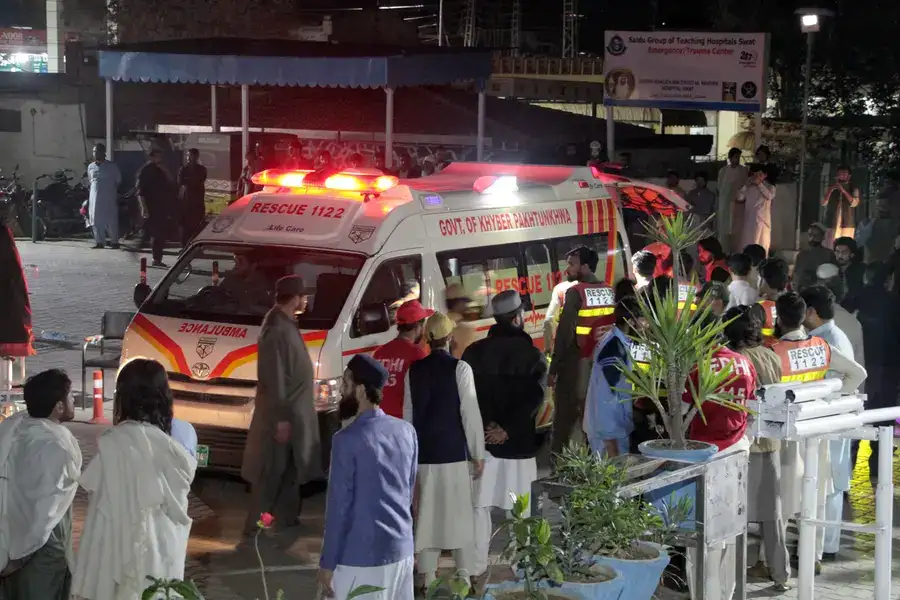14 Pakistani Soldiers Killed in Twin Attacks in Balochistan, BLA Claims Responsibility

In a devastating series of events in Balochistan, militants killed 14 Pakistani soldiers in two coordinated attacks. The Baloch Liberation Army (BLA), a separatist group pushing for Balochistan’s independence, claimed responsibility for the assaults, which have worsened the province’s ongoing instability. These attacks emphasize the long-standing political and social tensions in Balochistan, one of Pakistan’s most volatile provinces.
The Twin Attacks
The first ambush occurred early in the morning when militants targeted a Pakistani military convoy in northern Balochistan. As the convoy moved toward a military outpost, armed attackers launched a well-coordinated assault, using small arms and explosives. Despite the soldiers’ efforts to defend themselves, the attack left nine soldiers dead.
Less than two hours later, militants struck again, this time in the eastern part of the province. They targeted a military facility with rocket-propelled grenades (RPGs) and automatic weapons, killing five soldiers and injuring several others. Pakistani forces responded quickly, but the attackers fled into the surrounding mountains, known for their rugged terrain.
The BLA claimed responsibility for both attacks, calling them retaliation against the Pakistani government’s exploitation of the region and its oppression of the Baloch people.
The Conflict in Balochistan: A Deep-Rooted Struggle
Balochistan has long been a center of separatist movements, with groups like the BLA advocating for independence or greater autonomy from Pakistan. The province is rich in natural resources, such as gas, oil, and minerals, yet its people have largely seen no benefits, which has fueled resentment toward Islamabad.
The BLA has used guerrilla tactics to push for independence. The group has been involved in numerous violent attacks on military personnel, law enforcement, and government infrastructure. Separatists frame these actions as acts of resistance against the Pakistani state, which they accuse of suppressing the Baloch population and exploiting the region’s resources for the benefit of others.
Pakistan’s military has launched several large-scale operations to combat separatist movements in the region. These military campaigns have led to heavy casualties on both sides, and civilians often bear the brunt of the violence. Despite attempts at peace talks, neither the Pakistani government nor the separatist groups have shown much willingness to negotiate.
The Impact on Local Civilians
Balochistan’s civilian population has endured significant hardship due to the ongoing violence. The province remains one of Pakistan’s least developed areas, with widespread poverty, limited infrastructure, and inadequate access to education and healthcare. Violence exacerbates these issues, making life for the local population even harder.
Many civilians find themselves displaced by the fighting, seeking safety away from the frontlines. The humanitarian crisis in Balochistan continues to worsen, with access to essential services like medical care and education severely limited. In many cases, civilians are caught between the military’s operations and the separatists’ attacks, both sides causing harm to the local population.
Despite these difficulties, the sense of political exclusion persists in Balochistan. Many Baloch people feel ignored by the central government, and their calls for greater autonomy or independence grow louder. Economic neglect and political marginalization fuel this sense of frustration.
The Strategic Importance of Balochistan
Balochistan holds considerable geopolitical significance due to its rich resources and strategic location. The province’s coastline along the Arabian Sea and the key port city of Gwadar make it a vital part of China’s Belt and Road Initiative (BRI). As China invests in infrastructure and development projects, many Baloch separatists claim that these efforts primarily benefit foreign interests, not the local population.
Balochistan also shares borders with Iran and Afghanistan, further complicating the situation. Separatist groups in the region have been accused of receiving support from neighboring countries, although these allegations remain contested. The involvement of foreign powers adds a layer of complexity to the conflict, turning the region into a flashpoint for broader geopolitical tensions.
Looking Ahead: A Region in Crisis
The twin attacks in Balochistan highlight the ongoing challenges the region faces. While the Pakistani government has vowed to continue military operations against separatist groups, the situation on the ground remains unstable. The BLA and other separatist groups show no sign of backing down, and the humanitarian situation continues to deteriorate.
Civilians in Balochistan bear the brunt of the violence, and the region’s future remains uncertain. Without a political solution that addresses the demands for autonomy and control over local resources, the conflict will likely continue.
For the international community, Balochistan’s instability poses significant challenges. The region’s geopolitical importance, combined with its rich resources and proximity to major international powers, makes it a critical area of concern. As the violence persists, the prospects for peace and stability in Balochistan seem distant, and the road to a peaceful resolution remains fraught with obstacles.






